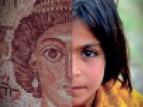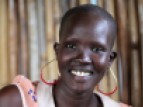
UNESCO awards five International Literacy Prizes
cou_03_17_news_01.jpg

On the occasion of International Literacy Day (8 September), Irina Bokova, Director-General, awarded five UNESCO International Literacy Prizes at a ceremony, following the recommendations of an international jury.
This year’s prizes and celebration focused on Literacy in a Digital World. It brought together stakeholders and decision-makers from around the globe to examine how digital technology can help close the literacy gap, and to help people gain better understanding of the skills needed in today’s societies.
One of two awards of the UNESCO King Sejong Literacy Prize − dedicated to mother-tongue literacy education and training and sponsored by the Republic of Korea − went to the Centre for the Study of Learning & Performance (CSLP) at Concordia University (Canada). The award was given to its “Using Educational Technology to Develop Essential Educational Competencies in Sub-Saharan Africa” project, which develops and distributes its materials internationally, and free of charge. The project’s overall focus is to develop tools and strategies to benefit pre-kindergarten to secondary education, post-secondary education, health and social services and the NGO/community sector. It aims to help those facing barriers to achieve their potential in the personal, academic and professional domains.
The second King Sejong Prize went to We Love Reading (Jordan), a programme with a virtual community that offers online read-aloud training for parents, mobilizes volunteers to read aloud in community spaces to children and provides age-appropriate material through a digital library. After working in public libraries in the United States, its founder, Rana Dajani, realized the urgency of building libraries in Jordan – with the goal of “a library in every neighbourhood”. It also launched a programme in the Za’atari Refugee Camp for Syrian refugees in northern Jordan, training volunteers to become story-tellers for children.
The three awards of the UNESCO Confucius Prize for Literacy, supported by the Government of the People’s Republic of China, reward work that benefits rural populations and out-of-school youth, particularly girls and women. This year’s winners are: the AdulTICo programme of the Secretariat of Information and Communications Technologies of the city of Armenia (Colombia), for teaching digital competencies to seniors; The Citizens Foundation (Pakistan) for its Aagahi Adult Literacy Programme, which conducts digital educational needs assessments and provides teaching services for women and out-of-school girls; and the FunDza Literacy Trust (South Africa), a non-profit group dedicated to improving literacy among teenagers and young adults.
AdulTICo has helped thousands of seniors in Armenia, Colombia, to develop skills connecting them to the modern world. "Overcoming illiteracy in new technologies opens a lot of opportunities for many of us, like staying in touch with our relatives abroad,” declared Rosa Barragán, one of its most experienced students.
The Aagahi programme provides education to the less privileged, including women and girls. The word aagahi, in Urdu, one of Pakistan’s official languages, means creating awareness.
The FunDza Trust sees education as the basis of a healthy society and literacy as central to this. It develops literacy by growing a community of readers and writers among its target audience. It has four outreach programmes: popularizing reading by getting print books to young people; growing communities of readers, using mobile phones, among other things; developing young writers through its FANZ section; and providing an online curriculum that deepens reading practice.
For half a century, UNESCO International Literacy Prizes have rewarded individuals and civil organizations who have achieved excellent and innovative goals in the field of literacy. Over 475 projects and programmes have been recognized since 1967.






















